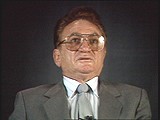You searched for: hiding
<< Previous | Displaying results 311-320 of 499 for "hiding" | Next >>
-
Jacob Unger
ID CardJacob was living in Essen, Germany, when he met and married Erna Schumer, who, like him, came from a religious Jewish background. The couple had two children, Max, born in 1923 and Dora, born in 1925. Jacob worked as a salesman, and in the evenings he tutored students in Hebrew. 1933-39: In 1933 when Hitler came to power, Jacob went to Amsterdam to explore the possibility of the family moving there. However, Erna did not want to leave her three sisters who were living in Essen, and she also believed that…
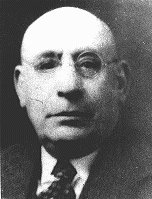
-
Warsaw district handbill announcing penalties for anyone caught assisting Jews
ArtifactOn September 5, 1942, the SS and Police Leader of the Warsaw District issued this announcement threatening the death penalty for anyone who aided Jews who had left the ghetto without authorization. This poster was put up in the wake of the mass deportation of Jews from the Warsaw ghetto to the Treblinka killing center in summer 1942. SS officials were well aware that thousands of Jews had fled the ghetto to go into hiding and urged people to turn them in. The poster reminds the city's non-Jewish…
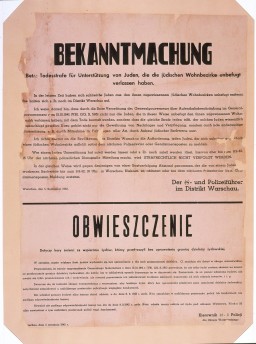
-
Ilona Haas Geroe
ID CardIlona was one of seven children born to a Jewish family in the city of Szeged, about 100 miles south of Budapest. Her father was an accountant. At the turn of the century many of Ilona's father's relatives emigrated to the United States, but Ilona's father decided to stay. Ilona also became an accountant and got a job in Szeged. 1933-39: Ilona's work as an accountant kept her busy but her free time was spent enjoying music and sports. She also began to study English since so many of her relatives had…
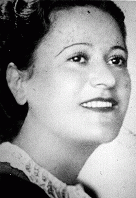
-
Gideon Boissevain
ID CardGideon was known affectionately as "Gi" by his family and friends. His parents were descended from the Huguenots, French Protestants who came to the Netherlands in the 16th and 17th centuries. Gi had two brothers and two sisters, and his father worked in the insurance business. 1933-39: Gi had a large circle of friends, both Christians and Jews, and after school they all liked to get together. He and his friends enjoyed taking bike trips, having parties, and playing records. In the mid-1930s his parents…
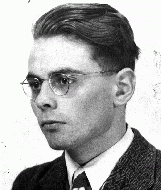
-
Robert Weinberger
ID CardRobert was raised in a German-speaking Jewish family in the Slovakian capital of Bratislava, where his father owned a dental supply business. Robert grew up bilingual: He learned Hungarian from his mother and he attended a German-language Jewish grammar school. 1933-39: When Hitler rose to power in Germany, anti-German sentiment grew in Slovakia and many Jews in Bratislava, like Robert's parents, who had originally identified with German culture, enrolled their children in Slovak schools. In March 1939…
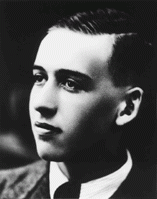
-
Preben Munch-Nielsen describes a fishing boat used to carry Jews to safety in Sweden
Oral HistoryPreben was born to a Protestant family in Snekkersten, a small fishing village. The Germans invaded Denmark in 1940. Preben became a courier in the resistance. When the Gestapo (German Secret State Police) began hunting down Jews in Denmark in October 1943, Preben helped hide refugees in houses near the shore and led them to boats which took them to Sweden. Preben himself had to take refuge in Sweden in November 1943. He returned to Denmark in May 1945.
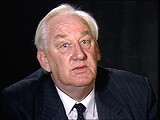
-
Sophie Turner-Zaretsky describes how the teddy bear brings her back to the past
Oral HistorySophie was born Selma Schwarzwald to parents Daniel and Laura in the industrial city of Lvov, two years before Germany invaded Poland. Daniel was a successful businessman who exported timber and Laura had studied economics. The Germans occupied Lvov in 1941. After her father's disappearance on her fifth birthday in 1941, Sophie and her mother procured false names and papers and moved to a small town called Busko-Zdroj. They became practicing Catholics to hide their identities. Sophie gradually forgot that…
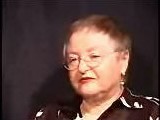
-
Lucine Horn describes the German occupation of Lublin
Oral HistoryLucine was born to a Jewish family in Lublin. Her father was a court interpreter and her mother was a dentist. War began with the German invasion of Poland on September 1, 1939. Lucine's home was raided by German forces shortly thereafter. Soon after the German occupation of Lublin, Jews there were forced to wear a compulsory badge identifying them as Jews. A ghetto in Lublin was closed off in January 1942. Lucine survived a series of killing campaigns and deportations from the ghetto during March and…
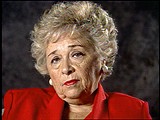
-
Lilly Appelbaum Malnik describes the process of registration in Auschwitz
Oral HistoryGermany invaded Belgium in May 1940. After the Germans seized her mother, sister, and brother, Lilly went into hiding. With the help of friends and family, Lilly hid her Jewish identity for two years. But, in 1944, Lilly was denounced by some Belgians and deported to Auschwitz-Birkenau via the Mechelen camp. After a death march from Auschwitz, Lilly was liberated at Bergen-Belsen by British forces.
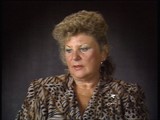
-
Tomasz (Toivi) Blatt describes gassing operations in the Sobibor killing center
Oral HistoryTomasz was born to a Jewish family in Izbica. After the war began in September 1939, the Germans established a ghetto in Izbica. Tomasz's work in a garage initially protected him from roundups in the ghetto. In 1942 he tried to escape to Hungary, using false papers. He was caught but managed to return to Izbica. In April 1943 he and his family were deported to Sobibor. Tomasz escaped during the Sobibor uprising. He went into hiding and worked as a courier in the Polish underground.
